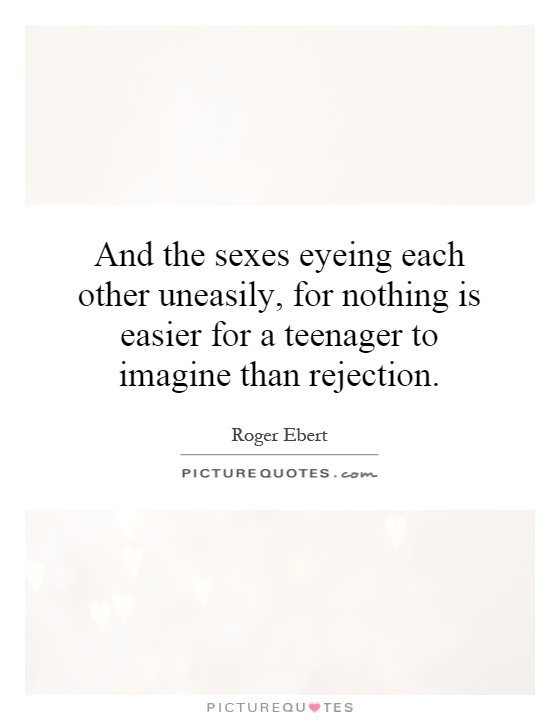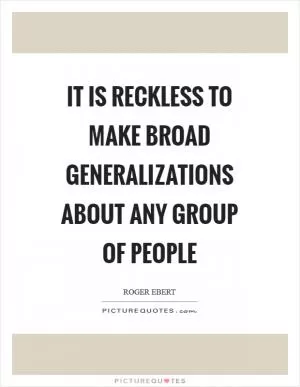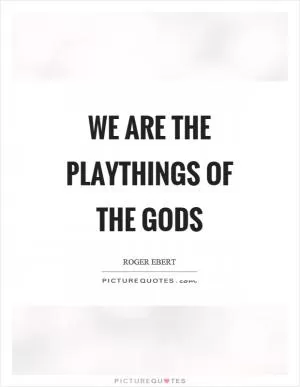And the sexes eyeing each other uneasily, for nothing is easier for a teenager to imagine than rejection

And the sexes eyeing each other uneasily, for nothing is easier for a teenager to imagine than rejection
Roger Ebert, the renowned film critic and writer, was known for his insightful commentary on movies and his ability to connect with audiences through his reviews. However, Ebert's personal life also played a significant role in shaping his perspective on relationships and rejection.Ebert was a teenager once, just like everyone else, and he experienced the same insecurities and uncertainties that come with adolescence. The quote "And the sexes eyeing each other uneasily, for nothing is easier for a teenager to imagine than rejection" speaks to the universal experience of feeling vulnerable and self-conscious when it comes to romantic relationships.
Ebert's own experiences with rejection likely influenced his understanding of human relationships and his empathy towards characters in films who grapple with similar issues. In his reviews, Ebert often delved into the complexities of love and desire, exploring how these emotions can both uplift and devastate individuals.
Ebert's keen observations on the dynamics between men and women in films reflect his nuanced understanding of the power dynamics at play in real-life relationships. He was attuned to the subtle cues and gestures that convey attraction, hesitation, and rejection, and he was able to articulate these nuances in his writing with sensitivity and insight.
Ebert's ability to empathize with characters who face rejection or unrequited love is a testament to his own experiences and struggles in navigating the complexities of human connection. Through his reviews, Ebert offered a window into the emotional landscapes of characters on screen, inviting audiences to reflect on their own experiences with rejection and vulnerability.












 Friendship Quotes
Friendship Quotes Love Quotes
Love Quotes Life Quotes
Life Quotes Funny Quotes
Funny Quotes Motivational Quotes
Motivational Quotes Inspirational Quotes
Inspirational Quotes